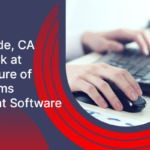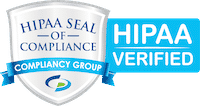How Claim Management Companies Can Enhance Their Practices
October 18, 2024
The medical insurance industry calls for efficient reimbursement processes for both patients and healthcare providers. The complicated medical claims process may lead to error-prone, inexpensive, and time-consuming manual processing. This is where claims software comes into the picture to maximize reimbursements and streamline operations.
Understanding the Challenges
Before understanding the benefits of claims software, it’s important to delve into the challenges posed by medical insurance reimbursements. Manual claims processing often results in errors, like missing information or incorrect coding, leading to claim delays or denials. Moreover, the ever-changing regulatory compliance makes it more challenging for healthcare providers to optimize reimbursements and stay compliant.
The Evolution of Claims Software
Claims software has seen dynamic growth over the years, using cutting-edge technologies like machine learning, artificial intelligence (AI), and automation to automate the reimbursement process. Modern claims software solutions provide comprehensive features to streamline the claims management process, from adjudication to submission and payment.
Streamlining Claims Submission
One of the claims software’s main functions is automating the claims submission process. Rather than navigating complex electronic systems or manually filling out paper forms, healthcare providers can leverage advanced software interfaces to submit claims electronically. Claims software ensures that claims are precisely completed, with integrated validation checks to find issues before submission. This not only decreases the possibility of claim denials but also hastens the reimbursement process.
Enhancing Coding Accuracy
Accurate medical coding plays a pivotal role in successful claims reimbursement. Claims software integrates coding guidelines and updates, helping healthcare providers assign the right codes to diagnoses and procedures. With integrated validation tools and coding assistance, claims software decreases coding errors and makes sure that compliance is maintained with industry regulations and standards. This precise process helps to optimize reimbursement rate accuracy and reduces claim denials by increasing the billable services.
Facilitating Claims Adjudication
Claims adjudication refers to reviewing, evaluating, and determining the eligibility status of reimbursement claims. It’s a significant step in the reimbursement process. Claims software helps automate the entire process, using advanced algorithms and rules-based engines to access claims against payer guidelines and policies. By flagging potential discrepancies or issues upfront, claims software hastens the adjudication process and reduces the possibility of claim rejections or denials.
Real-Time Claim Tracking and Monitoring
For healthcare providers looking for timely reimbursements, it is important to have complete visibility and transparency into the status of claims. Claims software provides real-time claim monitoring and tracking capabilities, enabling providers to track the progress of claims from submission to payment. The intuitive dashboards and reporting tools make it easier to track claim denials, identify bottlenecks, and take effective steps to resolve issues. This proactive approach not only improves cash flow but also streamlines the overall revenue cycle management.
Compliance and Regulatory Support
Staying compliant with payer policies and healthcare regulations is an arduous task for healthcare providers. Claims software simplifies compliance by automatically updating regulatory changes and payer policies, ensuring the correct submission of claims as per the latest requirements. Additionally, claims software generates audit trails and documentation to support compliance efforts, reducing the risk of penalties or audits.
Improving Reimbursement Accuracy and Timeliness
Claims software improves reimbursement timeliness and accuracy by enhancing coding accuracy, streamlining claims submission, automating adjudication, and offering real-time tracking. This results in faster adjudication cycles, fewer claim denials, and increased visibility into the reimbursement process. This not only improves provider-payer relationships and patient satisfaction but also enhances financial performance.
Conclusion
In conclusion, claims software helps to optimize medical insurance reimbursements by streamlining processes, enhancing accuracy, and improving timeliness. By automating claims submission, facilitating accurate coding, automating adjudication, and providing real-time tracking, claims software makes it easier to navigate the reimbursement landscape. It’s important to invest in advanced claims software to maximize revenue, deliver superior patient care, and reduce administrative burden in the healthcare environment.
7 Features Every Online Claim Management System Needs
June 27, 2024What to Look for in Claims Management Software?
May 8, 2024









